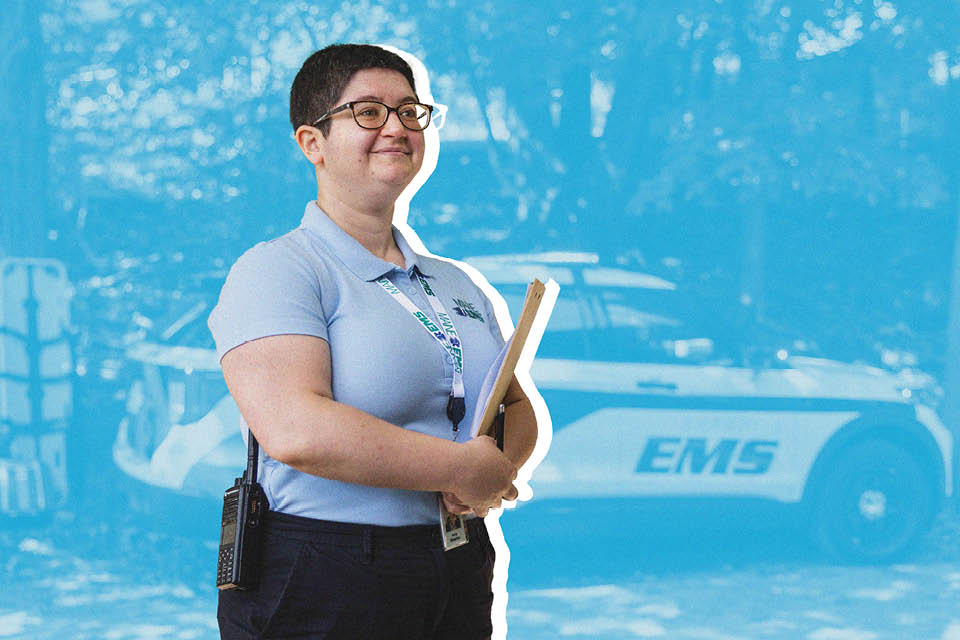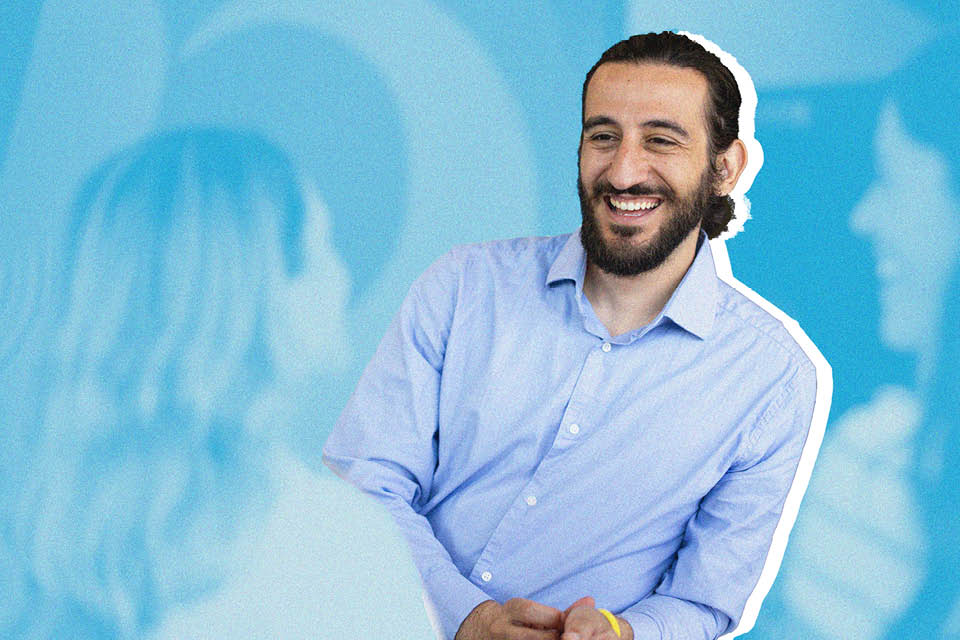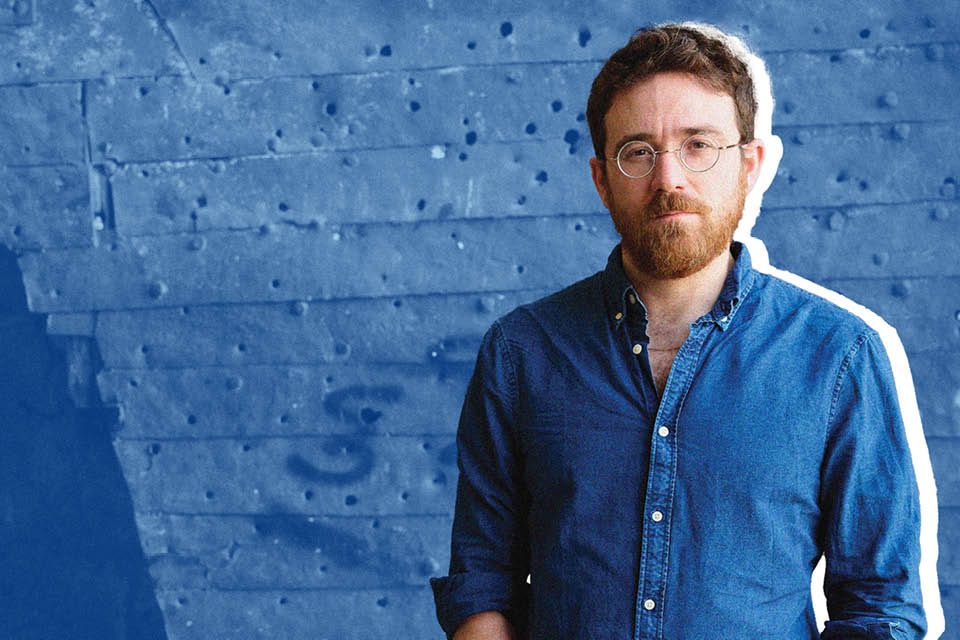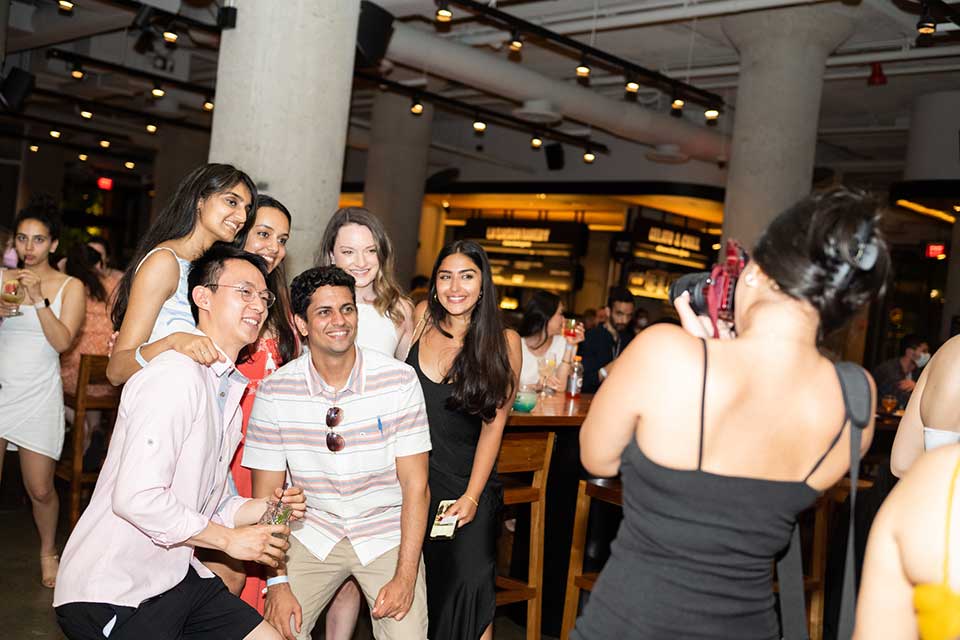Brandeis Alumni, Family and Friends
Anna Massefski ’17 is inspiring careers in emergency medical services
Massefski is one of three alumni who have graduated in the last ten years who are being honored as a BOLD Rising Star.

As coordinator of Maine’s EMS Explorer Program, Anna Massefski ’17 is spearheading the statewide effort to inspire people to pursue emergency medical services (EMS) as a career path.
The hope, she says, is to both equip people with lifesaving skills, and give them a clearer understanding of what a career in the field would look like. Coordinated by the state and led by Massefski, the program works by connecting students at partnering schools with their local emergency services personnel, then providing mentorship, training, and an opportunity to engage with the public safety and healthcare partners in their community. Students gain leadership and communication skills, while also becoming certified in CPR and First-Aid.
For this work, the Alumni Association has named Massefski a 2024 BOLD Rising Star. The award recognizes young alumni – BOLD is short for “Brandeisians of the Last Decade” – who are already leaving their mark in their chosen field.
How did the Explorer Program come together and what are its main goals?
I was hired in 2022 and before me, there was no Explorer Program. When I started, it was really: “Here's this idea we have. Go make it happen.” Over the last year and a half, I've been working to create the program from scratch, identifying and working with community partners, and figuring out how it works best. Our hope is for people across Maine to learn about emergency medical services, to connect with their local service providers, and think about whether this is a career that might work for them. We want to make sure people have the opportunity to make an informed choice before pursuing a more formal education.
What are some of your day-to-day responsibilities?
My role is really oversight and development. I am responsible for teaching participants, but also for helping to implement the program across the state. For example, if an EMS agency is interested in starting up a program for themselves, I help them do that. These providers then go to their local schools, their community partners, and teach their students directly. So on top of delivering training, my role is about empowering the agencies to get out into their community. And we're currently developing an implementation guide to make that process easier.
The program is currently geared toward youth. Will that expand to serve people of all ages?
Right now, we're focusing on high schoolers, because they’re at a critical point where they’re thinking about college and what they might want to do as a career. But we do want to expand it to older age groups. I want it to be something for anybody considering EMS as a career, or even as a volunteer opportunity.
How did you personally come to EMS?
It's funny, I never thought of EMS as a career path until coming to Brandeis. I was a transfer student, majoring in film and writing. I had in the back of my mind, though, that I wanted a plan B. Then one day, walking to the dining hall, I heard a loud smack. Another student had fallen and hit her head. She was bleeding, freaking out, and I didn't really know how to handle it. The BEMCO EMTs (Brandeis’ student-run volunteer emergency medical service) arrived and immediately calmed her down and handled the situation. I thought: “I want to know how to do that.” So the next semester, I took an EMT class Brandeis offered. After graduating, I got licensed as an EMT.
Beyond working in the field, what inspires you to shed a light on what it takes to be an EMT?
It's important that people understand what they're getting into, because what you see on TV and in movies, isn't really what EMS is about. For me, EMS is about being there for someone on their worst day. The calls where I really felt like I made a difference were the ones where all I could do was be a compassionate advocate, listening to a patient’s problem, and maybe making them feel a little better. But if I had gone into EMS wanting that hot-blooded action that people think of, I would have been badly disappointed. That’s why there are a lot of people who start an EMT class that don't finish, or finish but don't get licensed. I want to help people better understand what this work entails before they make a serious commitment to it.
What’s your hope for the future of the program?
With the implementation guide we’re developing, our hope is for EMS agencies to run with it themselves. I want this to be something that grows and becomes accessible to agencies across Maine, and even across the country. I believe people are their own changemakers, so I see my role here as empowering agencies, teachers, students, and EMTs to think about what’s right for them, and then to go for it.









